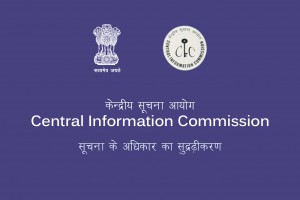Central information Commission: The Commission recently heard an appeal from the complainants who sought information from Indian Banks Association to be clearly refused by the latter stating that it is not a public authority under S. 2(h) of the RTI Act and the main issue to be decided upon before the commission was if IBA is a public authority or not. The commission for this first went through its own recent decision dated 20.10.2017 of the Information Commissioner, Shri M. Sridhar Acharyulu, declaring IBA as public authority under S. 2(h) of the RTI Act, 2005 on the two grounds:
a. Direct/indirect financing
b. Substantial control by the appropriate Government.
To this, Commissioner Ms. Majula Parashar said that she entirely agreed that IBA is a public authority under S. 2(h) of the Act, but she refused to agree to the reasoning that IBA is directly or indirectly financed by the appropriate Government. In this respect, the complainant submitted that the IBA comprises of 29 member banks of which around 18 banks are public sector banks and thus, IBA is a body controlled by appropriate government and thereby fall under the definition of S.2 (h) of the Act. Further, he said that IBA also acts a think tank and as an advisory body for banks showing that it performs ‘public function’, thereby satisfying the requirement to be declared as public authority under the RTI Act. He also contended that IBA is an agency and instrumentality of State.
On the other hand, counsel on behalf of the respondent contended that IBA is an unregistered, voluntary association of banks or of likeminded people and is neither a statutory body nor has been incorporated under any law. After hearing both the parties, the Commissioner cited a judgment by Delhi High Court- Hardicon v. Madan Lai (W. P. (C) No. 6946/2011 decided on 12.03.2015), wherein it was held that flow of funds from banks to contribute to shareholding of Hardicon Ltd. cannot be said to be direct or indirect funding by the Government.
Commission observed that so far as control part of appropriate Government is concerned it is noted that the IBA is an agency or instrumentality of the State as the Central government controls it as majority of Managing Committee members are Managing Directors of Public sector Banks, who in turn are Government of India employees. It was further noted that IBA performs various functions entrusted to it by Reserve Bank of India. The Commisison further observed that for determining whether an organization is an agency or instrumentality of the ‘State’, Mathew, J. in Sukhdev Singh v. Bhagatram Sardar Singh Raghuvanshi, (1975) ILLJ 399 SC said that indication for it should be a combination of State aid and furnishing of an important public service to result into a conclusion that the operation should be classified as State agency.
Taking account of the fact that the IBA performs functions as State agency and its majority control vests in Government of India appointed Managing Directors of Public Sector Banks, it held that IBA would definitely qualify to be a public authority. The Commission, therefore, directed the IBA to designate an official of the IBA as the CPIO at the earliest as per provisions of S. 5 of the 2005 Act and also to comply with S. 4 of the it. [R. K. Jain v. Indian Bank Association, 2017 SCC OnLine CIC 1790 , decided on 13.11.2017]

